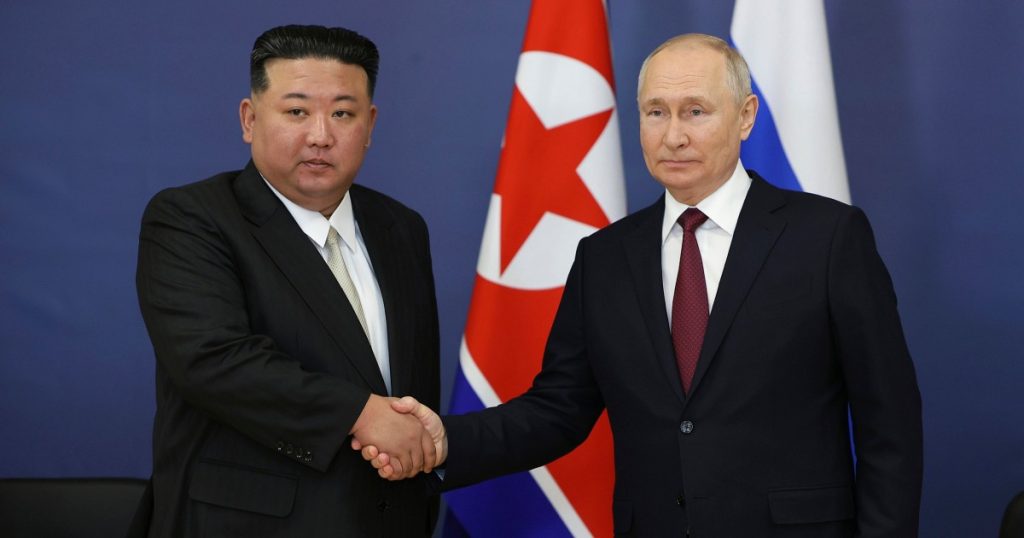Russia’s veto at the United Nations ended monitoring of sanctions against North Korea over its nuclear program, sparking accusations from Western nations that Moscow is violating the sanctions to procure weapons from Pyongyang for the conflict in Ukraine. The vote, with 13 in favor, Russia against, and China abstaining, would have extended the mandate of a panel of experts monitoring sanctions on North Korea for a year. Russia’s decision to block the work of the panel of experts, which had been renewed annually for 14 years, reflects its strained relationship with the United States and its allies since the start of the conflict in Ukraine.
Russia’s U.N. Ambassador argued that sanctions are no longer effective in preventing the proliferation of nuclear weapons in North Korea and accused the panel of experts of playing into Western biases. The U.S. Deputy Ambassador criticized this move, calling the panel’s work essential and warning that Russia’s veto could embolden North Korea in its efforts to develop long-range ballistic missiles. The White House condemned Russia’s actions as reckless and warned against the deepening cooperation between North Korea and Russia, especially considering North Korea’s supply of weapons to Russia for the conflict in Ukraine.
Britain’s U.N. Ambassador accused Russia of violating U.N. sanctions by engaging in arms deals with North Korea, including the transfer of ballistic missiles that were subsequently used in the conflict in Ukraine. France’s U.N. Ambassador also criticized Russia for breaching resolutions by receiving military material from North Korea for its aggression against Ukraine. Russia’s deputy U.N. ambassador dismissed these claims as unfounded insinuations and defended the decision to not support the extension of the panel of experts, stating that the veto was the right decision.
The Security Council imposed sanctions on North Korea following its first nuclear test explosion in 2006 and has since tightened them in 10 resolutions in an attempt to curb its nuclear and ballistic missile programs. The last sanctions resolution was adopted in December 2017, and in May 2022, China and Russia vetoed a U.S.-sponsored resolution that would have imposed new sanctions over intercontinental ballistic missile launches. The panel of experts mandated to investigate violations had been renewed for 14 years until the recent veto by Russia, reflecting a shift in the dynamics of the Security Council regarding North Korea.
Overall, Russia’s veto at the United Nations to end monitoring of sanctions against North Korea has raised concerns among Western nations about Russia’s alleged violation of these sanctions to procure weapons from Pyongyang for the conflict in Ukraine. The move highlights the strained relationship between Russia and the United States and its allies and the challenges in reaching consensus at the Security Council. Despite the veto, the actual sanctions against North Korea remain in force, and the international community continues to work towards curbing North Korea’s nuclear and ballistic missile programs.


